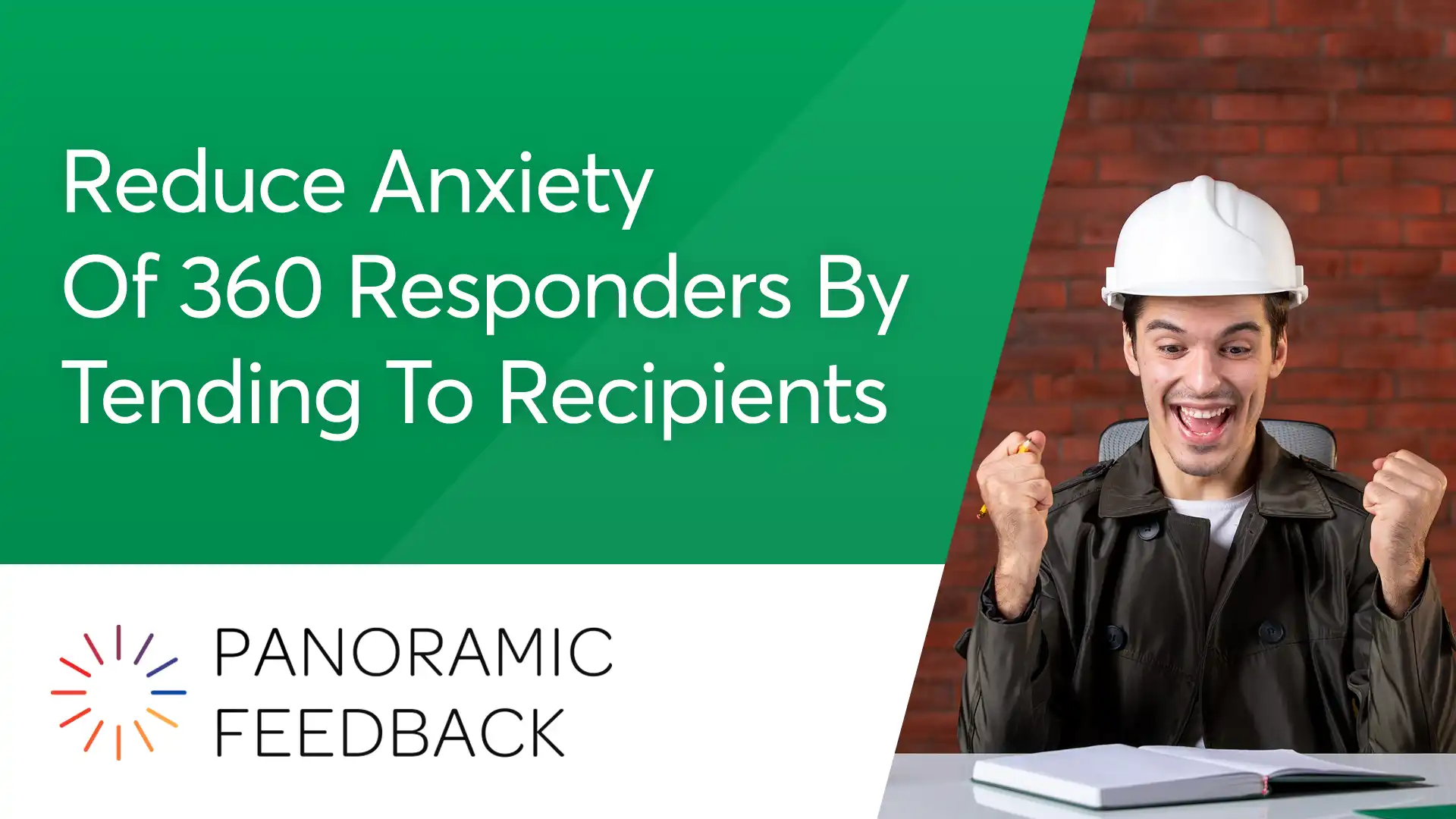Where To Start: Questions The 360 Design Team Needs to Ask
These four sets of questions will help your design team ensure they cover the crucial issues in 360 planning. Fundamental questions Questionnaire Subjects and Responders Reports

Today we will consider five ways to reduce responders’ anxiety.
1. Feedback makes the world go round
Remind responders that there’s nothing new or fancy about feedback. It’s basic to human nature.
We all need know how we’re doing. That’s why, from infancy onwards, we get praise when we do well, and corrections to help us refine our skills.
To offer feedback is to express respect and hope for the recipient.
2. Still, anxiety is normal
Because we don’t know how a person will respond to frank feedback, it does require a certain amount of courage. Ask the parent of a teenager.
The good news is that most adults are so eager to excel in their careers that they welcome any information that will help.
3. Who says criticism has to be nasty?
We’ve all descended to negativity at some point, and we’ve seen how it alienates the person on the receiving end, accomplishing nothing positive.
Remind responders that the most effective way to give critical feedback is to keep in mind the changes they’d like to see.
Then tell it the way they’d like to be told, describing the behavior they want to see changed, in a supportive and respectful manner.
4. Prepare those being assessed
Being the recipient of feedback carries its own anxieties. By calming the recipients, you encourage a safer environment for those who provide feedback.
Remind recipients that an outsider’s perspective is not a threat but a gift. It helps them assess their own performance objectively, lighting the road to career success.
5. Encourage a feedback loop
It’s good for the health of the workplace when recipients reflect openly about their feedback.
Responders feel encouraged, knowing that it is appreciated and led to changes. They respond with a greater level of trust, which makes for greater productivity.
To reduce the anxiety of responders, you must also support the recipients. Your reward is to watch a growing culture of openness and trust.
These four sets of questions will help your design team ensure they cover the crucial issues in 360 planning. Fundamental questions Questionnaire Subjects and Responders Reports